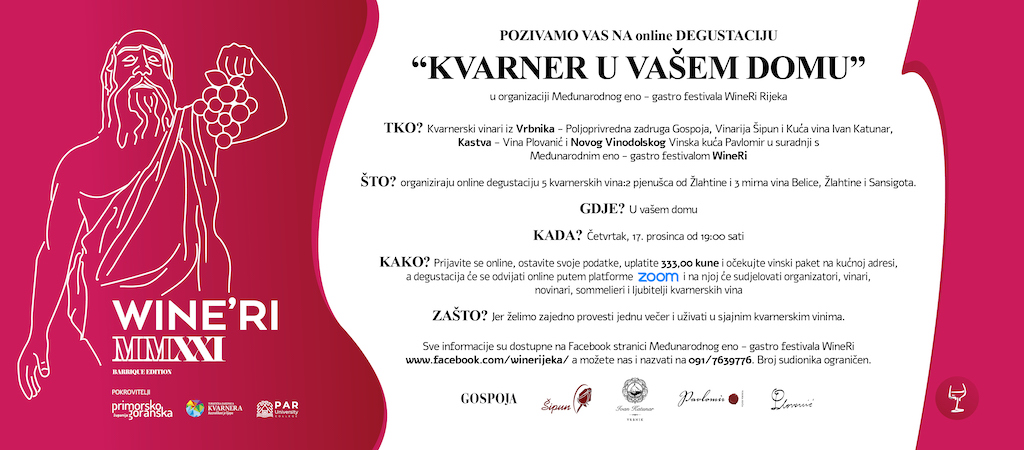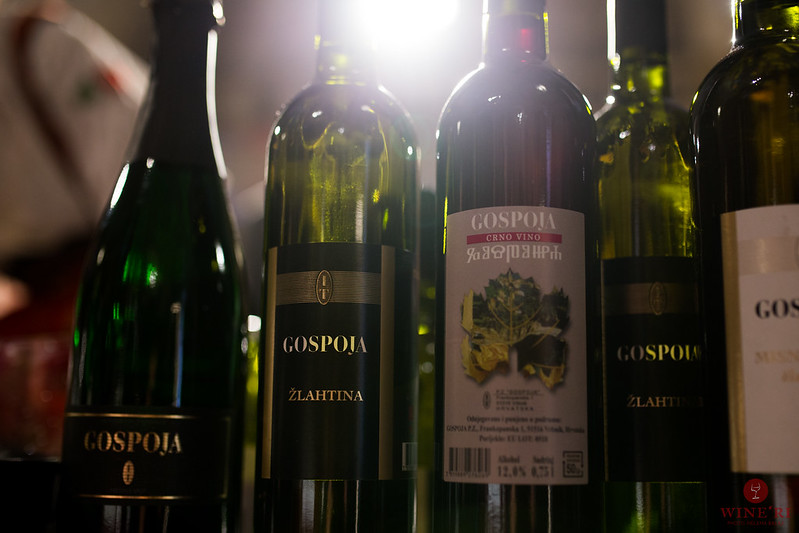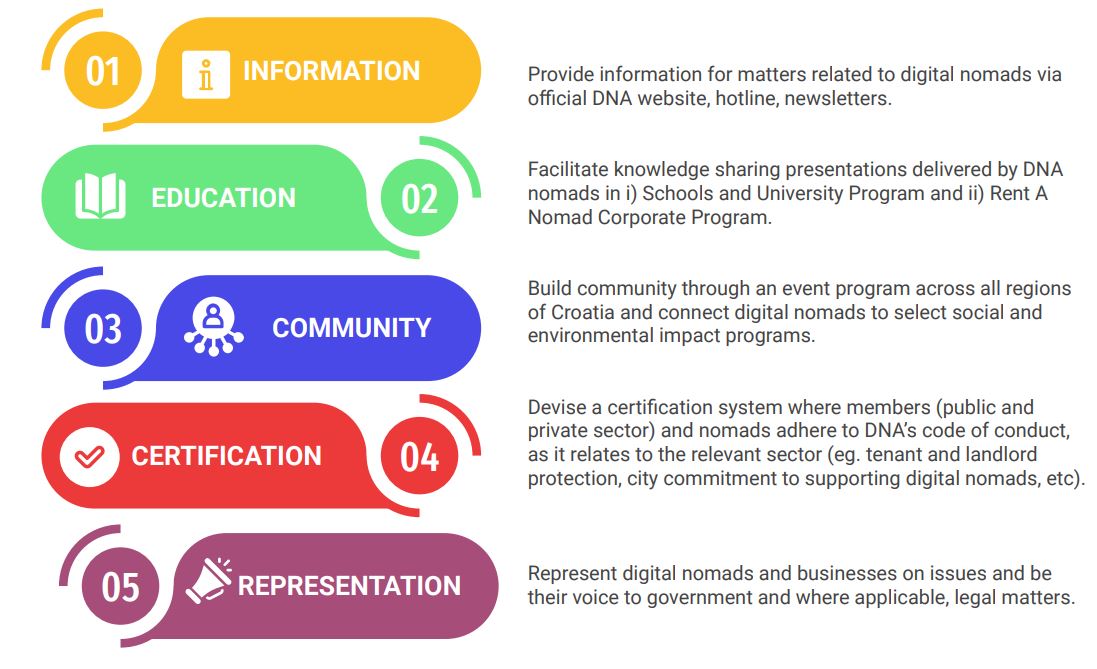17,850 Rapid Antigen Tests Provided for Zagreb Social Welfare Institutions
ZAGREB, Dec 9, 2020 - The City of Zagreb has obtained 17,850 rapid antigen tests for its 60 social welfare institutions, the head of the Zagreb department for social policy, Romana Galic, said on Tuesday.
Of those 60 institutions, 41 are old age homes, and the remaining 19 are institutions for providing care to people with disabilities and other vulnerable groups of citizens, Galic said.
She explained that this had been the first batch of the rapid coronavirus tests which should be used in a period of one month, and the Zagreb authorities hope that they will be provided with additional quantities of those tests.
Testing of staff working in retirement homes and beneficiaries is a manner to prevent the spread of this virus in those institutions, she added.
Currently, there are 196 beneficiaries from 11 old-care homes in Zagreb who are positive for coronavirus. Of them, 22 are receiving hospital treatment, about 50 beneficiaries, who have contracted the virus, are without symptoms and others are with mild symptoms of the COVID-19 disease.
Also, currently, 75 employees from Zagreb's old-age homes are positive for the virus, and an additional 38 are self-isolating.
Galic said that about 75% of beneficiaries in Zagreb's social welfare institutions have said that they are willing to undergo testing, while 36% of the staff have expressed readiness. Also, a marked portion of the staff have recovered from the infection, she said.
Croatia's Coronavirus Update: 4,520 New Cases, 69 Fatalities
ZAGREB, Dec 9, 2020 - In the last 24 hours, out of 12,596 tests performed for coronavirus, 4,520 (36%) have returned positive in Croatia, and 69 people have died of the complications linked to the COVID-19 disease, the national COVID-19 crisis management team reported on Wednesday.
There are now 23,750 active cases, and of the 2,703 are receiving hospital treatment, including 280 patients placed on ventilators, or 23 more than on Tuesday, according to a tally kept by the crisis management team.
Croatia's COVID-related death toll stands at 2,367.
Since February 25, when the first case was confirmed in the country, 159,372 people have been infected with the novel virus. A total of 837,619 people have been tested to date. More than 131,000 have recovered.
Currently, 57835 people are in self-isolation.
Geological Park Biokovo Imotski Lakes In UNESCO Network In Two Years
December 9, 2020 – After Papuk Nature Park and Vis Archipelago, Croatia will soon get another geopark under UNESCO protection. If everything goes according to plan, Geological Park Biokovo Imotski Lakes' proclamation is expected in the next two years.
As Lokalni.hr reports, the National Commission for UNESCO Geoparks of the Republic of Croatia sent the UNESCO Council of World Geoparks based in Paris documentation for registration and accession of the Biokovo-Imotski Lakes Geopark area to the network of UNESCO World Geoparks.
A unique area of Dinaric karst
"This completes a significant chapter on our path to the ultimate goal of becoming a Geopark under UNESCO protection," said Luka Kolovrat, director of the Imotski Tourist Board Imota.
The arrival of UNESCO evaluators is expected in the summer, and if everything goes according to plan, the Biokovo-Imotski Lakes Geopark's proclamation will be in the next two years.
"The initiative was launched in 2018 when we reported the Imotski Lakes Geopark project to the National Commission, and at the same time, the Biokovo Nature Park had a similar initiative. The position of the Commission was to unite the initiatives and to approach this project together," says Kolovrat.
There are many reasons for this. One of them is that the area of Imotski Krajina (Imotski region) with the Biokovo Nature Park is a geologically, geomorphologically, and unique landscape area of the Dinaric karst. Thus a joint application would use the potential of both areas for the benefit of the local community.
"At the end of 2018 and in 2019, the City of Imotski carried out a very complex and comprehensive geological research of the area of Imotski Krajina. It was the basis for future applications. The Geological Institute prepared the geological brochure of Imotski Krajina. At the same time, we conducted intensive negotiations with representatives of PP Biokovo on a joint application, defining names, headquarters, borders, coverage, management of Geopark, etc. At the end of 2019, the geological brochure was presented to the public, and the association Geopark Imotski Lakes was founded, which took over the management, operational affairs, and coordination from the Imotski Tourist Board," Kolovrat states the chronology.
In May this year, they sent a letter of intent to the Ministry of Economy and Sustainable Development. In July, they presented the project, after which they received a letter of support from them.
A piece of the planet of inestimable wealth
The next step is the arrival of UNESCO evaluators in the summer, and until then, they have a lot of work to do.
"In the next period, we need to implement the activities from the management plan: mark about a hundred sites that we have identified as geological, natural, and cultural sites, mark geological trails, do training for agencies, renters, family farms who should become partners of Geopark, create a bilingual website, promotional video, print brochures and various promotional materials," announces Kolovrat.
UNESCO Geoparks are unique geographical areas of international importance governed by a holistic concept of protection, education, and sustainable development.
"The UNESCO brand will lead to the recognition of our area at the global level. The creation of innovative crafts and new jobs encourages new sources of income as part of geotourism, strengthening the local community. At the same time, the geological, natural, and cultural heritage of the area remains protected. We believe that this piece of a planet of inestimable wealth on which we have the privilege to live, and we are its heirs, deserves to become part of the UNESCO family to the pride of us and the generations to come," says Kolovrat.
Geological treasury of Croatia
Due to its geological diversity and numerous fossil finds of organisms from the Pannonian Sea, the Papuk Nature Park was the first Croatian Geopark under UNESCO protection. Papuk is also in a nature park category since 1999, and the first geological natural monument in the Republic of Croatia is located in the Park.
Last year, UNESCO added three European sites to its geological parks, including the Vis Archipelago. In the geological past 220 million years ago, a magmatic breach formed the present islands of Jabuka, Brusnik, Biševo, and Palagruža. Palagruža is also geologically the oldest island in the Adriatic, which, like the island of Brusnik, is continuously growing under the influence of tectonic activity.
For the latest travel info, bookmark our main travel info article, which is updated daily.
Read the Croatian Travel Update in your language - now available in 24 languages
Bozinovic Announces New COVID-19 Measures for Shops in Croatia
December 9, 2020 - The National Civil Protection Headquarters held a press conference at 11 am on Wednesday. Interior Minister and Head of the Headquarters Davor Bozinovic announced new COVID-19 measures for shops in Croatia.
"Today is the 289th day since the virus appeared in Croatia. In the last 24 hours, we have 4520 new cases. The number of positive cases to date is 159,372. Since the beginning of the epidemic, 837,619 people have been tested. In the last 24 hours, we have 12,596 tests, which gives a positive percentage of 29.96. 2703 were hospitalized, and 377 were admitted. There are 277 patients on ventilators, which is 23 additional compared to yesterday. 268 people were released from hospitals. In the past 24 hours, we have 69 new fatalities, which gives a figure of 2367 deceased from the beginning," said the Headquarters, as reported by Index.hr.
Capak added: "Our weekly average has risen by 3.7% in the last week while we had a 17.4% increase last week, so this week our increase is less. Our incidence is still high; I'm talking about a 7-day incidence per 100 thousand people. At the moment, it is 582.1; the worst is in Međimurje and Varaždin with more than 1000," said Capak.
"When we look at the EU incidence scale, then we see that Croatia is in 26th place and only Luxembourg has a higher incidence. As for mortality, we are now 15th out of 27, and the rate is 547.8 per million people," Capak said. "As for the share of positives in testing, only two countries are worse than us."
"As we discussed on Monday in institutions dealing with COVID patients, today, we will emphasize the importance of caring for health professionals, whose experiences surpass all previous experiences badly. At KB Dubrava, there is permanent psychological and psychiatric care for all health professionals," said Health Minister Vili Beros.
"We are also trying to prevent the so-called burn out syndrome, and workshops and webinars with the idea of psychological help are organized. An active form of intervention has also been developed, where target groups are being helped in various ways, primarily by health professionals. I would not like to omit the efforts of the Croatian Psychological Chamber; they have established a network of emergency telephones and hired more than 150 psychologists who assist citizens," said Beros.
Questions from journalists followed
We still have week-to-week growth. What is the plan for further introducing measures? What are the new rules for shopping centers, and if this continues, what are the next steps?
"We discussed, in general, the criteria for strengthening or reducing measures. The direct answer is that on the 21st, we will consider which measures are appropriate; on the 21st, we will consider the situation. In case we get worse, of course, we will consider strengthening the measures. In all the measures we adopted about 10 days ago, there is a possibility that we further limit the number of gatherings and economic and social activities. Still, the 21st is the date when these measures cease to apply, and we amend the situation or the need to tighten measures," Capak said.
"As for the organization of shops and shopping centers, we have prepared a decision that is likely to be signed during the day and relates to the special organization of shops from this Saturday to January 10. In terms of this decision, stores and shopping malls are grouped according to the retail space's net area. The number of customers who can be in the store at the same time will be limited in such a way that in stores that have up to 10 square meters of retail space, there can be only one customer.
From 11 to 100 square meters, the maximum number of customers that can be in the store at the same time is determined so that there must be at least 10 square meters per customer. In spaces up to 200 square meters, there must be at least 12 square meters per customer. In shops up to 2000 square meters, there must be at least 16 square meters per customer, and for those larger than that, there must be at least 20 square meters per customer.
For shopping malls, the maximum number of customers will be determined to be at least 16 square meters for each customer. Stores and malls will need to make this clear at the entrance and strictly adhere to it. All stores are to take additional measures during the expected arrival of a larger number of customers so that more customers do not stay in the premises than allowed. For stores with more than 2,000 square meters and shopping measures, new measures are being introduced that include organized transportation of customers and the introduction of stewards who will prevent the entry of too many customers, obligations to remove or disable seating in common areas of shopping centers and remove or disable entertainment devices. The obligation to warn customers is also being introduced, and the competent civil protection service will have to be given information on the ventilation system," said Bozinovic.
"Representatives of stores will certainly do everything to ensure that these measures are respected, because if not, then there is the part concerning sanctions, which we are trying to avoid. It is in everyone’s interest here to engage to the maximum. And that figure determined by the size of the space is appropriate to the situation, not only epidemiological but also the average number of store entries during the epidemic. If citizens see that the queues are large, they may give up or go to another store. We cannot prescribe all life situations. This is a rational decision to keep such an important activity open," Bozinovic added.
"We will make this decision during the day; it will be valid until January 10, so we plan to keep stores and shopping centers open until then. This is now a special decision for stores, and we anticipate that they will work safely until January 10. No one can say whether there will be any sudden deterioration or improvement, but keeping in mind all the elements and assessments, we made this decision," Bozinovic concluded.
To read more about coronavirus in Croatia, follow TCN's dedicated page.
Croatia National Team Stadium Back on Table, HNS Hopes it Won't Take 9 Years to Build
December 9, 2020 - Building a Croatia national team stadium is back on the table. Representatives of HNS, the City of Zagreb, and the Ministry of Tourism and Sport weigh in on what's next.
Index.hr reports that on HRT's show Otvoreno on Tuesday evening, the topic was constructing a Croatia national stadium.
The guests of the show were the executive director of the Croatian Football Federation (HNS) Marijan Kustić, former footballer and president of the football union Dario Šimić, state secretary at the Ministry of Tourism and Sports Tomislav Družak, director of the Institute for Physical Planning of the City of Zagreb Ivica Rovis and HRT sports commentator Stjepan Balog.
For footballers, the issue of the national stadium has become offensive
Dario Šimić was the most specific about the construction of the new stadium.
"I'm worried that we are repeating ourselves. We have to wait a long time for the paperwork; it takes two to three years before the construction itself. We can realistically expect that stadium in 2030. We are doing the show, we have done it before, but this issue of the national stadium has already become offensive for us footballers," said Šimić, after which Marijan Kustić took the floor.
Funding football infrastructure is not the job of the Federation
"I would like Dinamo representatives to be here with us. They are mostly in that part of the agreement with the City. I hope it won't take us nine years to build a stadium. People are upset that we are talking about a national stadium. We are talking about the stadium in Zagreb, and the people from Dinamo were supposed to be here. The plan should go ahead as soon as possible. I think that something bad needs to happen at Maksimir stadium to start something," Kustić explained and continued.
"In the last few years, we have invested over 70 million kuna in stadiums through the HNS Executive Board, which should be the duty of clubs and cities. That is why we are constantly initiating investment in infrastructure. This is not the Federation's job, and I do not see which federation in Croatia and Europe invests so much in sports infrastructure. Dario Simic said it well; a man shudders when he sees what kind of stadium we have in Zagreb."
If the decision is not made immediately, nothing will be initiated
Šimić replied to Kustić.
"The society and the 1,500 clubs in Croatia deserve better infrastructure. If we don't start now and make a decision right away, nothing will start. Everything else is frustrating and sad."
State Secretary Tomislav Družak also joined the discussion
"A meeting of HNS, the City of Zagreb and Dinamo was organized two months ago. The Ministry of Tourism and Sport is initiating the construction of the stadium. We will not be financiers; we can participate in projects and give ideas, which can be the way. If the City wants to build a stadium, it has to find a model in which Dinamo will participate. They need to be asked something. Croatia needs a multifunctional and self-sustaining stadium that will not take taxpayers' money," Družak said.
In the end, host Damir Smrtić asked Marijan Kustić if HNS would implement a hybrid lawn at Poljud.
"A letter was sent to Hajduk today. Next Tuesday is a meeting with Hajduk regarding the construction of a hybrid pitch," Kustić concluded.
To read more about sport in Croatia, follow TCN's dedicated page.
Croatian Digital Nomad Association Officially Founded (& Visa Update)
December 9, 2020 - As the digital nomad visa inches closer to reality, the Croatian Digital Nomad Association is founded. More on that, and a visa update.
It all started with an open letter on LinkedIn to the Prime Minister last than four months ago. 44 days later, PM Plenkovic tweeted his assent - his government would push for the introduction of a digital nomad visa for Croatia, which would make it only the fifth place in the world and the second in Europe after Estonia (Dubai and Iceland have since also announced nomad visas). And the word is getting out, with the Washington Post the latest global media to feature digital nomads in Croatia, including the Dubrovnik for Digital Nomads conference, which was recently co-organised by TCN, Saltwater, the City and Tourist Board of Dubrovnik.
Jan de Jong, the Split-based Dutch entrepreneur whose LinkedIn post in July started the whole process rolling, announced plans at the Dubrovnik conference to found a Croatian digital nomad association in order to help make Croatia a more attractive destination for nomads, by offering a range of services to help build and serve the nomad community.
The new Croatian Digital Nomad Association will have five key areas of focus, as explained in the infographic below.
De Jong took to LinkedIn once again this morning to announce that the Croatian Digital Nomad Association has been officially founded:
YES!! We have officially founded the Digital Nomad Association Croatia ??. Together we shall unite & serve digital nomads in Croatia.
It looks like Croatia will not only be among the first countries in the world to welcome digital nomads - but we shall also have among the most attractive visa programs currently out there.
Changing the laws in Croatia in order to welcome digital nomads was just the start of a great and exciting journey.
Croatia has a chance to position itself among top destinations globally. There is a lot of work ahead of us - both in the private & public sector. That is the reason why we wanted to organize ourselves in an association.
If you want to:
✅ Join the association
✅ Support the association
✅ Volunteer at the association
Then please, follow Digital Nomad Association Croatia on #LinkedIn as more updates will follow soon - stay tuned.
I would like to thank my co-founders Tanja Polegubic & Karmela Tancabel for their efforts and insight. Thank you Younited Agency for our visual identity.
Last but not least, thank you all for your support. We would not have come here without your comments and shares
Give this post a ❤ as your first action to support the Association!
Pozdrav,
Jan de Jong
#Croatia
#DigitalNomads
#Remotework
What is the latest with the Croatian digital nomad visa?
Apart from the many questions I get about the new rules for entering Croatia at the moment, the most common request for information I am getting these days is a progress report on the availability of the digital nomad visa. There has been a LOT of interest in the visa, with Croatia perfectly positioned to offer a great nomad lifestyle experience to visiting remote workers. There is also understandable frustration from the initial tweet from the Prime Minister back in late August, and the still-undefined terms of the visa or the timing of its availability.
Here's my take on the current situation and what and when I think might happen (PLEASE NOTE that this is just my personal observations only, and you should wait for official confirmation before making any firm decisions).
What we know for sure is that the legal framework is now in place for the digital nomad visa to be available from January 1, 2021, as a result of a change in the Aliens Act a couple of weeks ago, as previously reported on TCN.
What is still to be finalised (and various ministries are working on the final details, to be completed by the end of the month) are the exact conditions of the visa, details of which are yet to be announced. Here are some of the main
Who can apply for the digital nomad visa?
I would expect that anyone who has a bone fide remote business will be able to apply for the visa. Key restrictions on the visa would be that no business can be done in Croatia or with Croatian companies. This visa is for remote workers earning their money abroad and spending locally.
How much will it cost?
I have not yet heard a figure for the visa fee, but I would be very surprised if it was anything more than a nominal fee, or even free of charge. Barbados is charging US$2,000 for an individual, US$3,000, which defeats the point of what Croatia is trying to achieve. There is little point creating a product and then making it prohibitively expensive.
Will proof of a minimum income be necessary? If yes, how much?
As more and more countries are introducing digital nomad visas, it would be understandable to assume that the products are basically the same. They are not. Just as Barbados is charging US$2,000 for the visa, so too others have prohibitive minimum income requirements. Dubai requires a minimum of US$5,000 a month, Iceland more than US$7,000 a month. I have not heard a figure mentioned for Croatia yet, but I would expect it to be considerably lower, but high enough to ensure that those who do come have the spending power to help the Croatian economy. A figure of 1,500 - 2,500 euro a month minimum would make Croatia much more accessible, as well as providing a new generation of word of mouth promoters for the country's tourism.
What about tax payable in Croatia?
This is one of the big unknowns, and one which will be 100% certain next week. Will digital nomads have to pay tax in Croatia? My feeling is that the Croatian visa will come without a tax requirement to Croatia. These may seem strange to some people until you take a closer look at the realities of who might be using the visa. Perhaps the best example I can give to illustrate the point is the Russian/Ukrainian couple from Munich who I came across last year in Jelsa who truly opened my eyes to the possibilities.
They both worked in IT, and their Munich boss told them that he was happy for them to remote work 10 months of the year, as long as they were available online during Munich working hours. They could have stayed at home and enjoyed remote work in Munich, but they decided instead to rent out their apartment and spend the time travelling - 3 months in Jelsa, then to Sicily, Spain and Portugal. They came to Jelsa from April 1 - June 30, renting an apartment for three months out of the main season. So happy were they that they planned to return for the same dates this year. They ate in the restaurants, drank in the cafes, bought local in the markets, took Croatian classes. Income coming into local businesses in Croatia which would otherwise have been spent in Munich.
Multiply these remote workers and there is a slow effect not only on the Croatian economy but also on local businesses and communities. By making Croatia an attractive destination in terms of tax liabilities, visa cost, and minimum income, this is a real opportunity. The market will only get more competitive, as more visas are offered. It should be noted that my example above does not require a visa, as they are EU residents, but I wanted to give a concrete example based on the economic benefits, even with no tax liability.
KPMG Croatia has kindly agreed to provide a tax guide article for digital nomads in Croatia, which we will be publishing later in the month.
What about health insurance?
I would expect health insurance to be a prerequisite.
Criminal record?
I would expect proof of no criminal record to be a prerequisite.
How to apply for a Croatian digital nomad visa?
We are also still waiting for details of this. I would expect this to be an online process, devoid of the usual bureaucratic obstacles. The Ministry of the Interior did an outstanding job this year with its border control, and its Enter Croatia form was an unqualified hit. This is the ministry which is driving the introduction of the visa, and this is the ministry which really performed this year in dealing with border and tourist movement. It was impressive to watch.
How long will the application take to be approved? That I have no answer to.
Will the visa be available on January 1? While technically, it could be, whether or not the final pieces of the jigsaw are in place is not certain. But I think it is fairly certain that it will be available in the first quarter of next year.
We will post any updates on our dedicated digital nomad section, which you can follow here.
Kvarner in Your Home: A Zoom Wine Tasting of Kvarner Wines!
December 9, 2020 - The international wine and food Festival “WineRi” and the "Vina Kvarnera“ association are organizing a Zoom tasting of the local Kvarner wines, called Kvarner in Your Home!
Unfortunately, during these pandemic times, Zoom wine tastings are becoming more and more normal. But, also, fortunately, thanks to technology, we can hang out at least through our computer screens and comment on different wines.
This time, before Christmas, the international wine and food Festival “WineRi” and the „Vina Kvarnera“ association are organizing a Zoom tasting of the local Kvarner wines. It will take place on Thursday, the 17th of December, under the title Kvarner in your home. It will be an online opportunity to both chat and learn about five wines. If you apply on the Facebook page „WineRi“ (https://fb.me/e/Pvwzxz2d) or the Festival WineRi website - you will taste them together with the professionals while relaxing at home.

The deadline for applying is Thursday, the 10th of December, at noon. You will also receive all the necessary data about the tasting by mail.

Ivan Katunar
The wineries that will be presenting their wines are Poljoprivredna zadruga „Gospoja, “Vinarija „Šipun“ and „Kuća vina Ivan Katunar, “all from Vrbnik, island of Krk; Vina „Plovanić“ from Kastav, and Vinska kuća „Pavlomir“ from Novi Vinodolski. The main idea is to make the indigenous Kvarner wine varietals more popular.

Ivica Dobrinčić
The sparkling wine Žlahtina, “Maličić” of Šipun winery that will be presented by the winemaker Ivica Dobrinčić is also a premiere, so the expectations are high. One more sparkling wine comes from the same varietal, but from the other side of Kvarner, from Novi Vinodolski. It is “San Marino” sparkling by Vinska kuća Pavlomir, presented by the owner Miroslav Palinkaš.

Miroslav Palinkas
The Cuveé made from different old indigenous varietals will be presented by the winemaker from Kastav, Dean Rubeša. Žlahtina again, the most well-known varietal from Kvarner, will also be presented in its still variety, made by Poljoprivredna zadruga Gospoja from Vrbnik, on the island of Krk and introduced by the oenologist Anton Brusić.

Gospoja

Dean Rubeša
Last but not least, red varietal Sansigot, originally from the island of Susak, but also grown on the island of Krk – will be presented by the winery Kuća vina Ivan Katunar from Vrbnik.
Vučedol Culture Museum Launches Virtual E-Learning Platform
December 9, 2020 - The Vučedol Culture Museum has adapted to the current COVID-19 situation and launched an e-learning platform so visitors can enjoy a virtual experience of the museum.
HRTurizam writes that although the museums are still open, of course with the observance of all epidemiological measures, due to the epidemiological situation they are poorly visited, especially since all tourist activity is currently on hold.
Faced with new challenges, and following the digital trends, the Vučedol Culture Museum has prepared two novelties in order to make it easier for all visitors to have a virtual experience of the museum. Thus, they made a 360-degree interactive tour of the Vučedol Culture Museum, and now they are among the first, if not the first museums in Croatia, to create a virtual e-learning platform, i.e., an interactive quiz.
"As COVID-19 significantly influenced visits to museums, we decided to adapt to the times and still follow modern trends in technology," says Darko Bilandžić, marketing manager of the Vučedol Culture Museum and creator of the virtual walks and quizzes, adding that the idea to take it a step further than a virtual tour and an educational quiz.
"This quiz falls under the new buzz word 'e-learning' in which visitors will see through 26 questions how much they know about Vučedol culture. Through interactive content, we are sure that we will provide the user with an educational and interesting experience and increase knowledge about Vučedol culture," adds Bilandžić.
The interactive quiz goes through 13 rooms and exhibits within the museum and contains a total of 26 questions in which everyone can test their knowledge of Vučedol and learn new knowledge about Vučedol culture. After the correct answer, a brief explanation of the correct answer is displayed.
"I am sure that others will soon recognize the importance of e-learning as a modern tool," concluded Bilandžić.
This is just one small example of the digitalization of tourism, and the whole platform is just opening the door for an upgrade that is virtually limitless. It is a digital platform or medium that can be expanded in various ways, and is just a matter of creativity and, of course, budget.
You can learn more about the interactive quiz of the Museum of Vučedol Culture HERE
To read more about lifestyle in Croatia, follow TCN's dedicated page.
Flights to Croatia: Finnair Plans Flights from Helsinki to Croatia in 2021
December 9, 2020 - The latest news for flights to Croatia as Finnair plans flights from Helsinki to Croatia in 2021.
Croatian Aviation reports that the Finnish national airline Finnair has confirmed its return to Croatia with two routes from Helsinki in the 2021 summer flight schedule.
Finnair did not operate to Croatian airports in the summer flight schedule in 2020. At one point, the airline announced flights to Dubrovnik, but they were not realized due to the epidemiological situation and restrictions at the state borders.
The Croatian market is very important to this airline, and apart from the P2P demand itself, the airline brings a large number of transfer passengers to Croatian airports from numerous Asian destinations, primarily China, Japan and South Korea.
Given that Emirates and Korean Air will not return to Zagreb Airport next summer, Finnair expects a larger number of transfer passengers to popular Croatian destinations such as Split and Dubrovnik, to which the company intends to operate next summer.
"We are sure to return to the Croatian market in the summer of 2021. Lines from Helsinki to Split and Dubrovnik will once again be an important link between Asia and the Adriatic."
The Helsinki-Split-Helsinki route, according to Finnair's current plan, should start with regular direct operations from 11 May 2021 with 5 flights a week (every Tuesday, Wednesday, Thursday, Saturday and Sunday). A319 aircraft with a capacity of 144 passengers in the carrier's fleet have been announced on the routes. Finnair plans to operate on this line until the fall (early October) next year.
The Helsinki-Dubrovnik-Helsinki route is planned for March 29, but the airline will still adjust the flight schedule to Dubrovnik according to the epidemiological situation.
According to the current flight schedule confirmed by this airline, there will be an increase in the number of weekly operations in April and May, so that as of May 25, as many as 6 flights per week will be available on this route (every day except Thursday). In relation to the line to Split, the airline plans to use A321 aircraft with a capacity of 209 passengers towards Dubrovnik. Finnair has as many as 19 aircraft of this type in its fleet.
The very fact that Finnair has decided to keep two lines to Croatia in its destination network for 2021 is important and positive news. It is still questionable whether Croatia Airlines will reintroduce a direct line between Helsinki and Zagreb next summer.
For the latest travel info, bookmark our main travel info article, which is updated daily.
Read the Croatian Travel Update in your language - now available in 24 languages.
Meet Megi - Croatian Mindsmiths' Virtual Healthcare Assistant
December the 9th, 2020 - With the coronavirus pandemic posing a constant threat to the normal functioning of the enfeebled Croatian healthcare system, the likes of Andrija and now Megi have been a blessing. Artificial intelligence is certainly the way to go in many a sector, and the the pandemic continuing to reign strong, the help of the Croatian Mindsmiths' creation, Megi, is proving invaluable.
As Lucija Spiljak/Poslovni Dnevnik writes, Croatian Mindsmiths developed Megi the virtual healthcare assistant in collaboration with the Magdalena Clinic using AI, and they presented it at an online conference on Tuesday. Her digital brain was modelled on the knowledge of experts, primarily cardiologists, as well as cardiology nurses.
Last Sunday, blood pressure was measured five times a day three hours apart to get a detailed picture of the condition monitored by Megi, a virtual healthcare assistant from the Croatian Mindsmiths, an Al startup, who helps people with hypertension, a chronic disease which causes high blood pressure.
As many as 40 percent of people over the age of 25 suffer from hypertension, of which they're unaware, it affects 31 percent of the adult population, but only 1 in 25 people actually has the disease under control. Long-term exposure to high blood pressure can cause strokes and heart attacks, kidney and heart failure, not to mention severe chronic disease.
During the testing process, the Croatian Mindsmiths' innovative creation stated the measurement and explained everything in detail, step by step, and those undergoing Megi's tests almost forgot that she isn't actually a real person but a product of artificial intelligence (AI).
She also checked family histories with other necessary risk factors for high blood pressure, and after collecting all of the data, she made an assessment of the situation with Dr. Aleksandar Trbovic, a cardiologist and head of the Magdalena Polyclinic in Zagreb, with whom she scheduled a meeting for the second day to see if there was any cause for concern.
''Megi helps us doctors to precisely dose therapies, speeds up processes, and the added value for our community is that it reduces the costs of treating hypertension and its possible complications," explained Dr. Trbovic.
Megi's initial development took six months before direct contact with patients and physicians could begin, and since then, she has been integrated into the actual hospital system and has been caring for more than 80 hypertensive patients for twelve months.
''With Megi, the time to gather information is shortened from fifteen minutes down to a mere four, while the time of therapy can be shortened from six months to three weeks. The digital assistant has a plan for you, monitors and reminds you to measure your blood pressure, calms you down and encourages you when you're worried.
If Megi notices that things aren't going well, she will alert and call a doctor. We have set a goal - if we can use AI to copy the brain of one expert and help one person, then we can help millions of others. In reality, people wait in hospitals for months to get a diagnosis, and Megi can relieve almost 80 percent of such check-ups,'' said Mislav Malenica, the director and founder of the Croatian Mindsmiths, who recognised healthcare as the first sector in which AI should be applied.
The director of digital health at the Magdalena Clinic, Nina Sesto, warned of predictions that by 2050, 40 percent of people in Europe will be over the age of sixty, which means they will more than likely have one or more chronic diseases to cope with.
“Artificial intelligence is the key to healthcare scalability. At the same time, it can take care of thousands of patients,'' pointed out Sesto.
Mirjana Lackovic suffers from hypertension and has been using Megi's help for twelve months now. "If my blood pressure doesn't adjust, I contact Megi until the condition normalises. If it's bad for a couple of days, she contacts the doctors,'' said Lackovic, while Stipe Knezovic points out that Megi is kind, acts in a calming manner just like a real nurse, and the feeling, he says, is just like having a pleasant conversation with a real person.
Megi has recently become part of the process of treating patients with hypertension at the Health Centre in Zagreb, in eight chronic patients cared for by Dr. Renata Romic, who especially praises the positive psychological effect in moments when blood pressure starts to jump up, because through conversation, the Croatian Mindsmiths' incredible creation suppresses additional stress and further blood pressure issues.
Clinical testing of the Megi prototype has shown huge potential for the application of AI in the healthcare sector and a drastic increase in efficiency in the treatment of chronic patients, so they expect, as was concluded Jan Stedul from the Croatian Mindsmiths, that Megi will gradually spread to all healthcare institutions.
For the latest travel info, bookmark our main travel info article, which is updated daily.
Read the Croatian Travel Update in your language - now available in 24 languages



